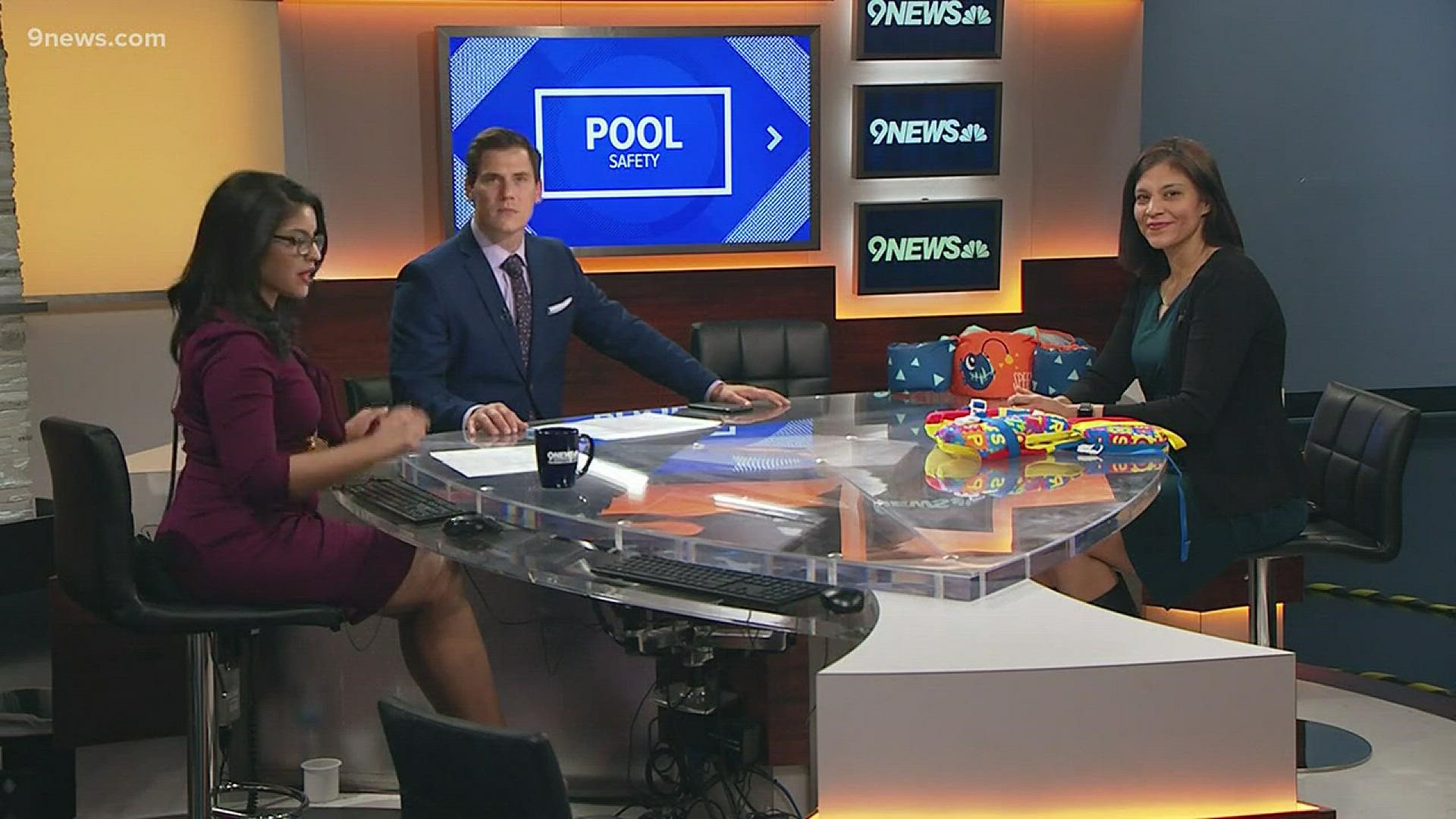COLORADO, USA — Every year, approximately 1,000 kids under the age of 20 die from drowning.
Drowning is the leading cause of death for children 1-4 years old, and among teens is the second leading cause of death.
The American Academy of Pediatrics (AAP) has released new guidelines for parents and family members.
New recommendations
- For the first time, AAP is now recommending kids who are 1-3 years old should take swim safety lessons. Research has shown kids under the age of 4 can learn basic safety skills like back floating, getting to the side of the pool and water safety instructions.
- There is new guidance on flotation devices. The AAP recommends kids wear a Coast Guard-approved life vest that fits snugly to ensure the child doesn't slip out (like a tube or just the floatie “arms”).
- If you have a pool, have at least a 4-foot fence around the pool with a gate that's self-latching and self-closing and not able to be climbed.
- Assign an adult to be a water-watcher. This adult should put away their cell-phone, not drink alcohol, stay on watch even with lifeguards and only be focused on the water to watch children who are swimming. Adults should switch out every 1-2 hours.
- Every child should learn how to swim.
- Every adult and child should learn CPR.
Some age-specific tips:
- Infants - An infant can drown in just 1-2 inches of water. Never leave an infant unattended in the bathtub or any type of water. Close the lid of the toilet.
- Toddlers - Lock doors/garages so children cannot get outside. Empty all buckets, baths and wading pools after you finish using them.
- Children - Choose places which are safe to swim in and do not have any underlying currents or rip tides. Make sure children take swim lessons from a certified instructor.
- Teens - Never dive head-first into shallow or unknown depth water. Wear life vests if on a boat. Be prepared to help (and learn CPR).
Follow 9NEWS Medical Expert Dr. Comilla Sasson on Facebook and Twitter. Have a medical question or health topic idea? Email Dr. Comilla at comilla.sasson@9news.com

